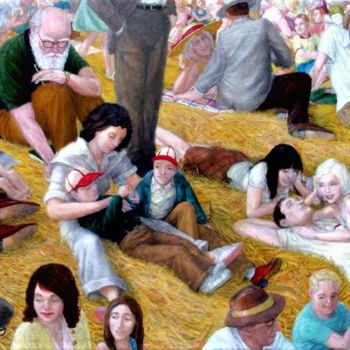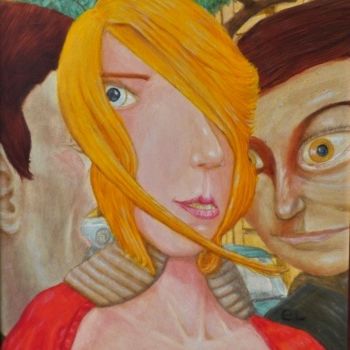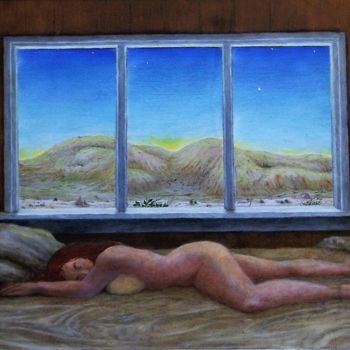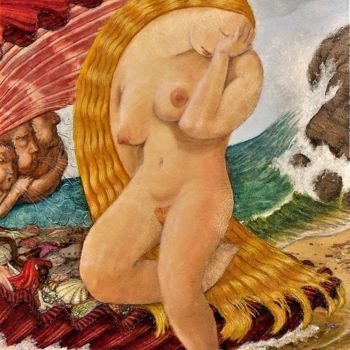

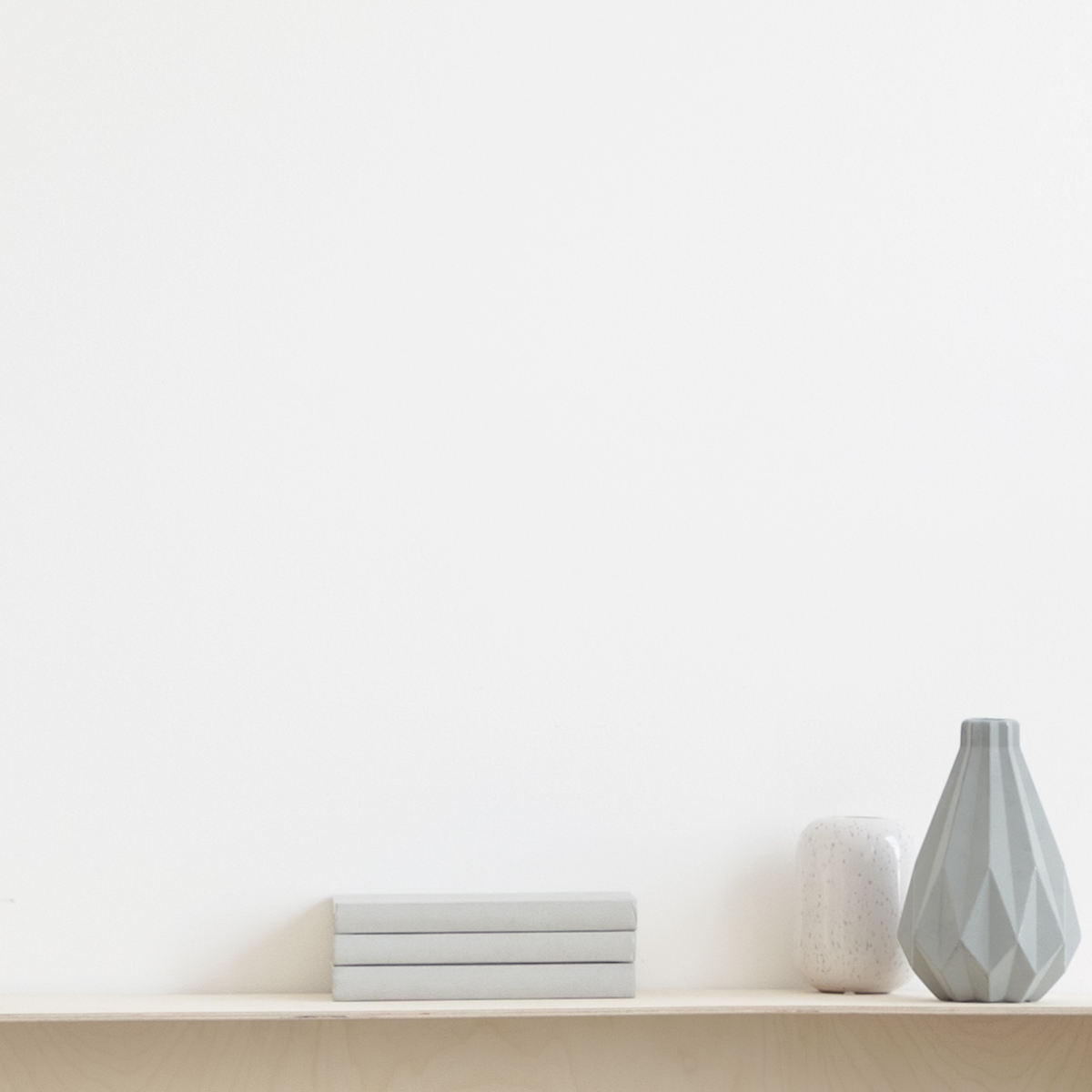
¡Háganos saber si le gustaría ver más fotos de esta obra de arte!
- Detrás del trabajo / lado del trabajo
- Detalles / Firma / Superficie o textura de la obra de arte
- Obra de arte en situación, Otro...
Love Gone (2020) Dibujo por Edwin Loftus
Más información
- embalaje (Embalaje de caja o cartón) Todas las obras se envían cuidadosamente protegidas y aseguradas, con un transportista premium.
- Seguimiento Seguimiento del pedido hasta la entrega al comprador. Se proporcionará un número de seguimiento para que pueda seguir el paquete en tiempo real.
- Plazos de tiempo Entrega mundial de 3 a 7 días (Estimar)
Más información
- Certificado de autenticidad online rastreable Los certificados de autenticidad se pueden verificar en línea en cualquier momento escaneando el código de la obra de arte.
- Certificación de la cotización de artista. Los expertos estudian el conjuto de la obra de un artista y su carrera y luego establecen una cotización media independiente y fiable. La cotización media permite situar al artista en una gama de precios durante un período determinado. También se puede solicitar a los expertos que fijen una cotizacion para una obra en particular.
Más información
Pago seguro 100% con certificado SSL + 3D Secure.
Más información
Impresiones "Fine-Arts" en papel
Es un proceso de impresión en papel de arte usando tintas pigmentadas de muy alta calidad e impreso en muy alta definición. Su nivel de conservación es excepcional (más de 100 años), su calidad, profundidad y riqueza de matices supera la clásica impresión fotográfica en papel argentino.
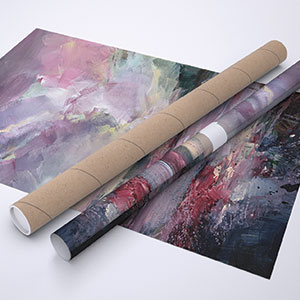
Acabado brillante
Además de su grosor excepcional, el papel de fibra está compuesto de una base de alfa-celulosa sin ácido y está cubierto con sulfato de bario y una capa microporosa que mejora la absorción de pigmentos durante la impresión. Con un color blanco puro, no amarillento a claro, este papel está especialmente diseñado para resistir y envejecer. Es utilizado por los principales museos de todo el mundo, ya que ofrece una resolución excelente, y ofrece colores profundos y densos.
Obra de arte "Fine Art" - Acabado brillante sobre papel base de fibra 325 g.
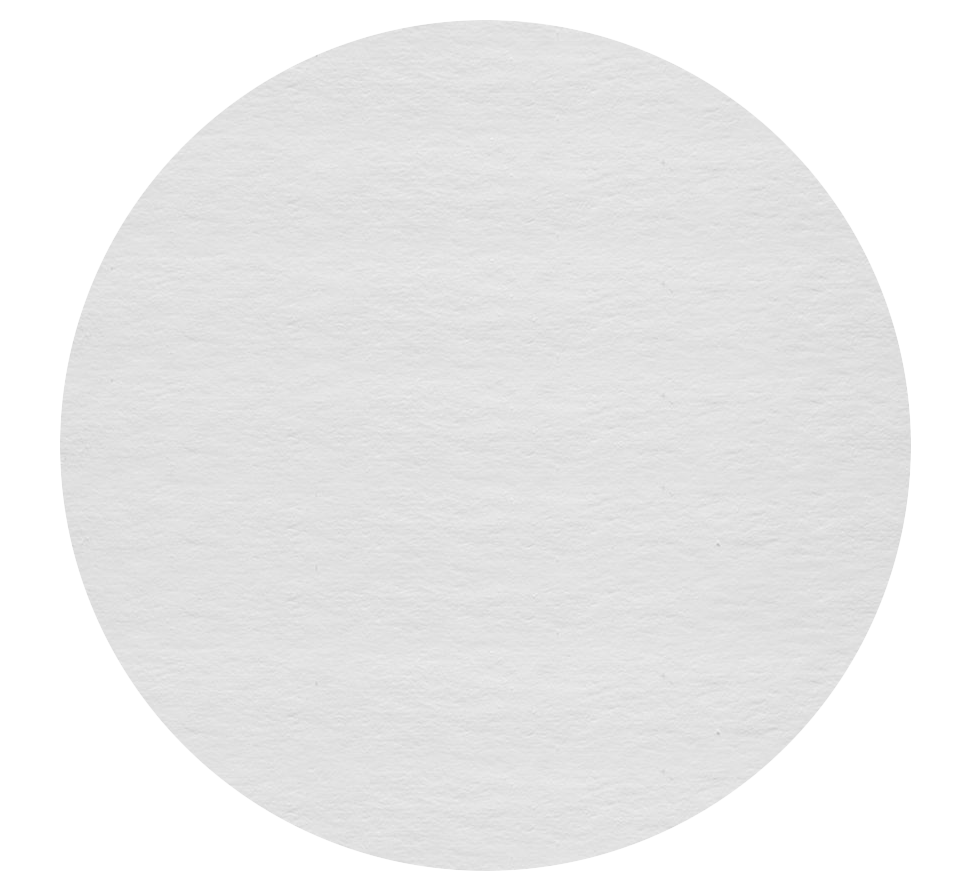
Nuestras impresiones y reproducciones de gama alta
Artmajeur solo utiliza papeles naturales con pH neutro, resistentes y de alta calidad, seleccionados de fabricantes de papel de renombre
Nuestra impresora maestra presta atención constante, ya sea en términos de control de color o respeto por la cadena gráfica. Nuestro alto nivel de exigencia de calidad es un activo importante de las impresiones artísticas enmarcadas de Artmajeur.
Para los artistas! Usted ayuda a los artistas a vivir de su trabajo. Reciben el pago de sus derechos cada vez que usted compra sus impresiones.
Acerca de nuestras impresionesCompre una licencia para utilizar esta imagen en su sitio web, su comunicación o para vender productos derivados.
Usage: Licencia web
| 1146 px | ||
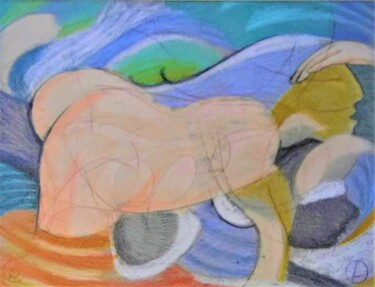
|
1500 px |
| Dimensiones del archivo (px) | 1146x1500 |
| Uso en todo el mundo | Sí |
| Uso en multi-soporte | Sí |
| Uso en cualquier tipo de medio | Sí |
| Derecho de revender | No |
| Número máximo de impresiones | 0 (Zero) |
| Productos destinados a la venta | No |
Descargar inmediatamente después de la compra
Esta imagen está disponible para descargar con una licencia: puedes descargarlos en cualquier momento.
Restricciones
Todas las imágenes de Artmajeur son obras de arte originales creadas por artistas, todos los derechos están estrictamente reservados. La adquisición de una licencia da derecho a usar o explotar la imagen bajo los términos de la licencia. Es posible realizar modificaciones menores tales como reenfocar o reenfocar la imagen para que se ajuste perfectamente a un proyecto, sin embargo, está prohibido realizar cualquier modificación que pudiera dañar la obra original. En su integridad (modificación de formas, Distorsiones, corte, cambio de colores, adición de elementos, etc ...), a menos que se obtenga previamente una autorización por escrito del artista.
Licencias personalizadas
Si su uso no está cubierto por nuestras licencias estándar, póngase en contacto con nosotros para obtener una licencia personalizada.
Banco de imágenes de arte-
Obra de arte original (One Of A Kind)
Dibujo,
Pastel
en Papel
-
Dimensiones
12x15 in
Dimensiones del trabajo solo, sin marco: Altura 8in, Anchura 10in - Enmarcado Esta obra se enmarca (Marco + debajo del vidrio)
- Categorías Dibujos menos de 1.000 US$ Arte Conceptual Amor
We do not know what has taken romantic love out of this woman's life; a loss of attraction to her, death, a relocation, imprisonment ... there are many possible circumstances.
As we go through life, we generate an expandable and malleable, theory about what reality is. The removal of so important a part of that reality as romantic love rips a huge hole in that construct.
We can learn to accept the absence, reconstructing our reality to enable us to go on.
We can find a substitute for the love that we've lost and build a new reality around that new condition.
Or we can decide that we are too damaged, that a new construct is beyond our capacity, and withdraw from life, partially or completely.
The last of these is the potential that makes love so dangerous.
Tennyson wrote: "I hold it true, whate're befall; I feel it when I sorrow most; 'Tis better to have loved and lost, than never to have loved at all."
Life requires courage, no matter the conditions of that life. As in any question of courage, it also requires that we be as matured in the quest to create ourselves as possible, so that when courage is required, we have the strength of whatever kind, to meet Life's challenges with courage.
The person who has created a self and sense of self, (a 'sapience'), that has the elements to be whole and sustainable, is less likely to be left incapable of facing life when such a loss occurs. This is what the raising of children should be about, the provision of guidance that will allow the child to become their best, and most sustainable self.
Unfortunately, there is a cheat that most parents rely on, "learning through example."
Through this class of media, the child learns to use our simian ancestor's greatest strength, imitation. We learn situations and how others responded and hope that in some similar situation we can imitate the example's response and achieve similar results. These pre-formulated responses betray us. Each year they kill hundreds of thousands of us, in part because we are not those examples we are imitating. In part because similar circumstances are not identical circumstances.
Instead of learning about the world and its conditions, we learn scenarios and try to transfer those conditions to differing scenarios. Instead of basing our responses on our real circumstances and the real circumstances we encounter, we imitate someone else's responses to other circumstances. We play roles on a theatrical stage-version of life and expect it not to fail, because it worked in the drama we saw.
Reliance on such pre-formulated examples suppresses our urgency to develop adaptability in the confidence of knowing our true capacities. That leaves us less adaptable and more subject to untenable disruptions.
As an illustration; It is estimated by historians that the average Medieval, European male directly experienced warfare on an average of every twenty years, (2 to 3 times in a lifetime), and that fighting was within arm's reach and involving weapons meant to crush or cut open large parts of the body. The average family experienced the death of about one out of five of their children below age five and another one out of five from there to adulthood. It was common for men to have two wives, the first dying in childbirth, the second a backup to raise the children and keep the household. They experienced a plague on the average of once each twenty years. And they were subjected to innumerable other traumas. By today's standards, the vast majority of them should have been rendered psychologically unable to function about mid-life. But that was not the case. Some, no doubt were, but it was only in the last century that the problem became so common we developed an industry to address it.
I believe that we have become less able to deal with loss and trauma as we have become more able to learn by examples provided by communications media, and less reliant on first-hand experience.
Temas relacionados
Edwin Loftus es un pintor y dibujante estadounidense nacido en 1951. Su interés por el arte comenzó a los 4 años cuando decidió dibujar algo real en lugar de trabajar desde su imaginación.
De niño destacó en el dibujo y de adolescente comenzó a experimentar con la pintura al óleo. En la universidad, tomó cursos de arte e historia del arte y se dio cuenta de que el verdadero arte no tenía nada que ver con la calidad del dibujo o la pintura, sino que tenía que tener la ambición de traspasar los límites y ampliar la experiencia visual.
También estudió filosofía, psicología e historia y rápidamente se dio cuenta de que era solo otro establecimiento de arte que intentaba defender su industria elitista y su sistema de recompensas. Sus habilidades eran casi inexistentes, no sabían nada sobre psicología, percepción o respuesta a estímulos, y eran extensiones del sistema de creencias que hicieron del comunismo, el fascismo y otras formas de totalitarismo fuerzas tan destructivas en el mundo. Literalmente creen que el arte no debería estar disponible para los seres humanos comunes, sino solo para una élite lo suficientemente "sofisticada" para entenderlo.
Edwin Loftus se dio cuenta de que los emperadores del arte no tenían ropa, pero seguían siendo los emperadores. Dotado en el arte, trabajó duro para adquirir esta habilidad. Así que encontró otras formas de ganarse la vida y vendió algunas obras de arte de vez en cuando. Durante sesenta años, muchas personas disfrutaron de sus obras y algunas las coleccionaron.
Hoy, Edwin Loftus está jubilado. Incluso si vendiera todas sus pinturas por el precio que pidió, "artista" sería el trabajo peor pagado que jamás haya tenido... pero así son las cosas. No le importará después de que muera. Solo espera que a algunas personas les guste lo que hace lo suficiente como para disfrutarlo en el futuro.
-
Nacionalidad:
ESTADOS UNIDOS

- Fecha de nacimiento : 1951
- Dominios artísticos: Obras de artistas con valor de artista certificado,
- Grupos: Artistas certificados Artistas Americanos Contemporáneos




